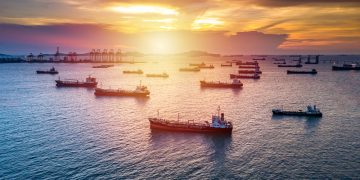On 14 May, the European Union agreed to a 17th package of sanctions against Russia, blacklisting an additional 189 tankers.
The new measures, formally expected to be adopted next week, target Russia’s shadow oil fleet and those involved in sustaining the Kremlin’s war efforts. The EU aims to increase pressure on Moscow to accept a 30-day unconditional ceasefire proposed by the United States and its allies, a move Zelenskyy has supported while challenging Putin to attend direct negotiations in Istanbul.
The sanctions include the blacklisting of 189 additional tankers suspected of helping Russia circumvent oil export restrictions, bringing the total number to over 350. These ships are accused of using deceptive practices such as disabling tracking systems and engaging in ship-to-ship transfers to hide the origin of Russian oil.
In addition, the EU is sanctioning 75 individuals and over 30 companies, including entities in countries like Kazakhstan, Serbia, Turkey, Vietnam, and the UAE, for allegedly supplying dual-use goods to Russia and supporting its military-industrial complex.
The measures also ban exports of certain EU-made chemicals that can be used in missile production.
To remind, in early March, the EU introduced its 16th package of sanctions against Russia while the UK announced its ‘largest sanctions package against Russia since 2022’.































































